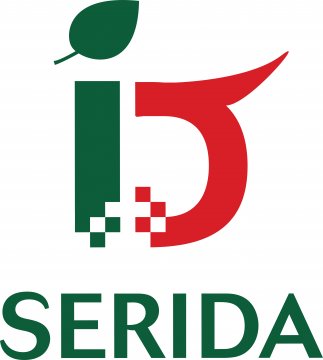
Servicio Regional de Investigation y Desarrollo Agroalimentario del Principado de Asturias
The Regional Service for Agrofood Research and Development (SERIDA) is a non-profit institution depending on the Government of Asturias,Spain, with three main centers located in Villaviciosa (headquarters), Deva-Gijon and Grado. SERIDA's main aims are to contribute to the modernisation and improvement of the regional agri-food productions through research and technological development in farming, livestock, forestry and food, in order to diversify and increase the local productions.
SERIDA develops research in plant production, plant genetics and breeding, animal production and reproduction, animal and plant health, as well as plant and animal genetic resources preservation.
The Plant Genetic Group of SERIDA (PGG_SERIDA) works in common bean:
- Preservation and use of plant genetic resources. PGG_SERIDA maintains a bean collection since 1991 including landraces, breeding line, mapping populations, diversity panels and modern cultivars. Many of these materials were characterised and genotyped from different approaches; morpho agronomic traits using classical descriptor and imagen analysis, resistance to diseases, seed and pod chemical composition,..etc.
- Plant genetic and genomic studies in order to know the inheritance of important traits in plant breeding or adaptation. For this aim, we carry out forward genetic analyses: development biparental population or diversity panels, phenotyping and genotyping the materials, identification and location the QTLs or major genes in genetic linkage maps and bean genome as well as investigate the candidate genes for the studied traits in the bean genome. Many of our efforts are focused on the study of resistance to stresses in common bean and morpho-agronomic traits.
- Plant breeding, developing of new cultivars in common bean using classical breeding methods together with marker assisted selection. Many of our efforts are focused on introgression of specific genes into the market class fabada, the main type of beans cultivated in the north of Spain, such as resistance to anthracnose, bean common mosaic viruse, powdery mildew, and angular leaf spot.
Role within INCREASE
SERIDA's main role in the INCREASE project is to contribute to bean tasks and here particularly to:
- Seed increase and distribution of bean collections (Phaseolus vulgaris L) in work package 3
- Phenotyping and genotyping of bean collections using classical and high through-put methodologies based in imagen analysis in work packages 3 and 4
- Analysis of possible loss of genetic diversity (genetic erosion) between in situ and on-site conservation taking as a model the bean market class fabada in work package 5
- Dissemination tasks
Main contacts

Dr Juan Jose Ferreira
Head of Plant Genetic Group

Dr Ana Campa
Researcher of Plant Genetic Group

Dr Carmen García
Researcher of Plant Genetic Group

Dr Roberto F Madrera
Researcher of Food Technology Group

Ing María Jurado
PhD student of Plant Genetic Group





